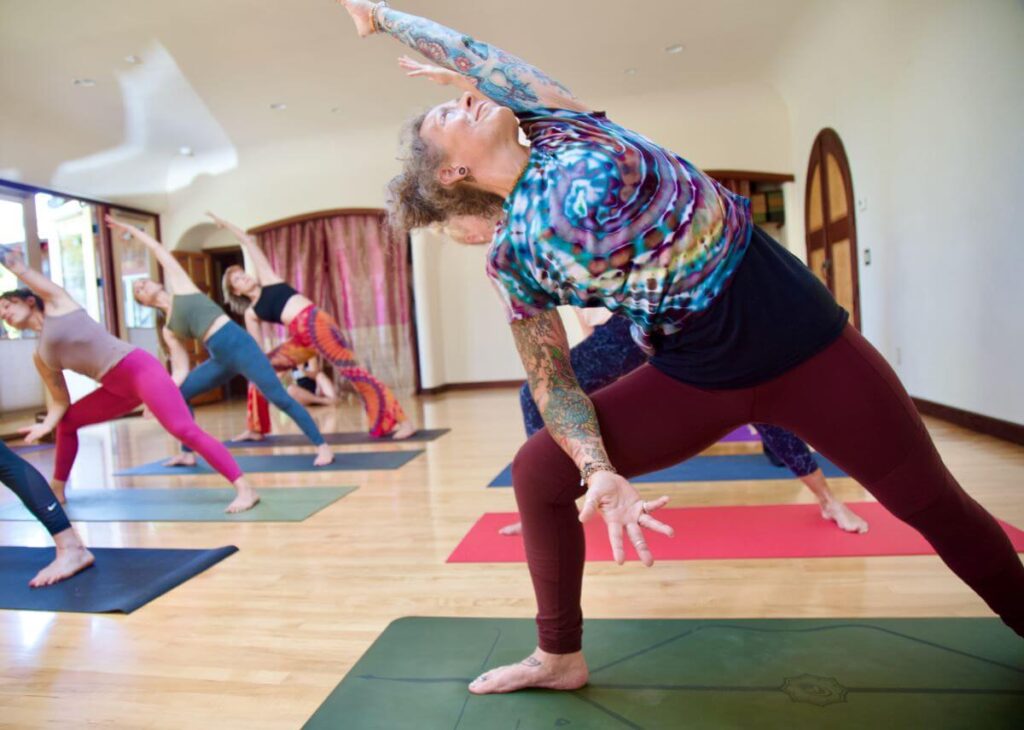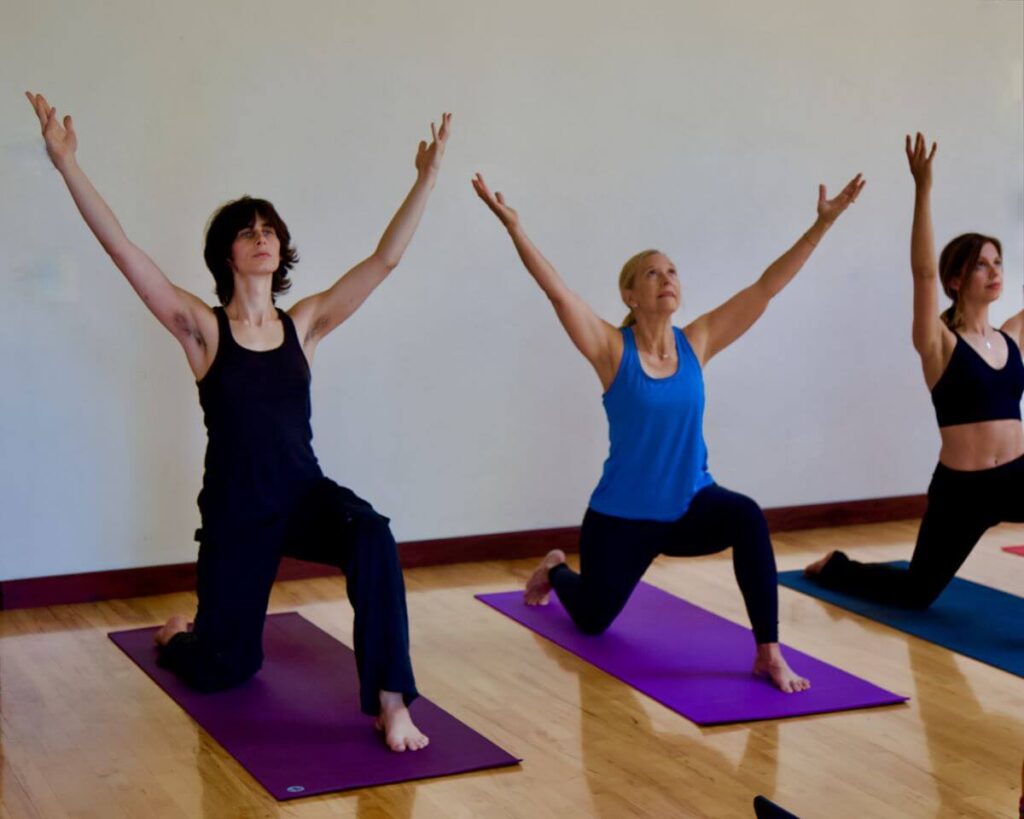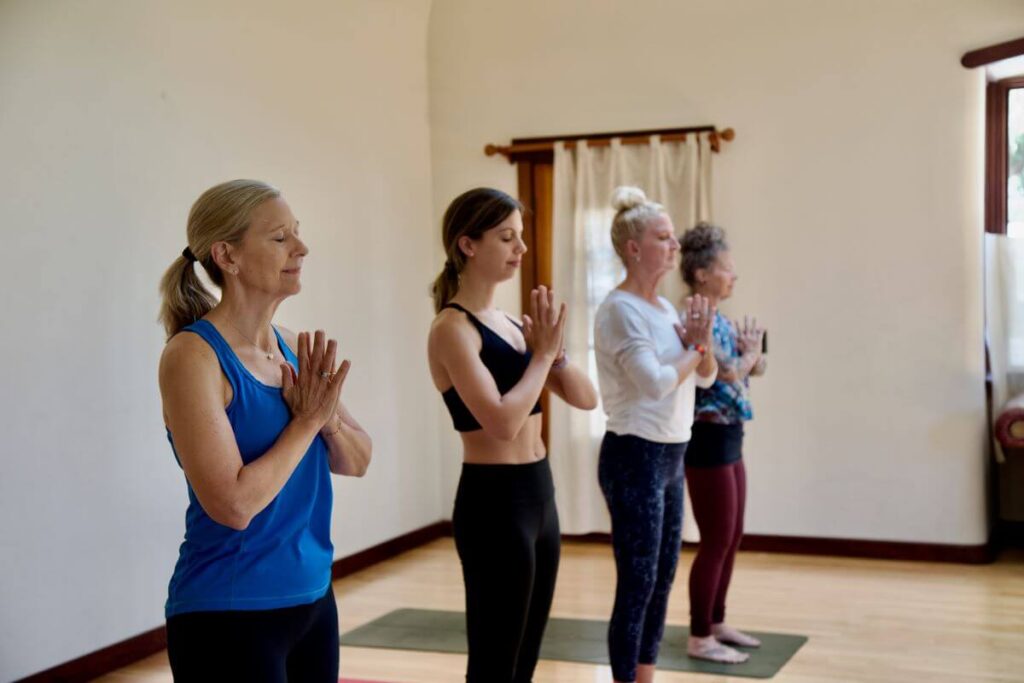In a world searching for solutions to the growing crisis of cognitive decline, an ancient practice is gaining scientific recognition as a powerful preventative tool. Yoga, with its unique combination of physical postures, breathing techniques, and meditation, is emerging as a promising approach to maintaining brain health and preventing cognitive deterioration before symptoms appear.
The Window of Opportunity: Mild Cognitive Impairment
Between normal age-related cognitive changes and dementia lies a critical stage known as Mild Cognitive Impairment (MCI). This condition is characterized by cognitive decline that exceeds what’s expected for a person’s age but doesn’t significantly interfere with daily activities. Furthermore, MCI represents a crucial window of opportunity for intervention.
Research indicates that approximately 10-15% of individuals with MCI progress to dementia each year, compared to 1-2% of the general elderly population [1]. However, MCI is not an inevitable path to dementia—studies show that between 30-50% of people with MCI can actually improve or stabilize their cognitive function with appropriate interventions [2].
This is where yoga enters the picture as a promising preventative approach.
The Evidence: Clinical Trials and Research Findings

The scientific community has increasingly turned its attention to yoga as a potential intervention for preventing cognitive decline. Specifically, multiple clinical trials and systematic reviews have yielded encouraging results:
Kundalini Yoga vs. Memory Enhancement Training
A landmark randomized controlled trial published in the Journal of Alzheimer’s Disease compared Kundalini yoga with memory enhancement training (MET) in 81 participants with MCI [3]. After 12 weeks:
- Both groups showed significant improvements in verbal memory
- Only the yoga group showed significant improvements in visual memory
- The yoga group demonstrated superior improvements in executive functioning
- The yoga group showed greater depression reduction
- The benefits in the yoga group persisted at the 24-week follow-up
Lead researcher Dr. Helen Lavretsky of UCLA noted, “Yoga provided a broader benefit than memory training because it also helped with mood, anxiety and coping skills.”
Comprehensive Meta-Analysis
A 2021 meta-analysis examined 11 randomized controlled trials involving yoga interventions for cognitive function in older adults [4]. The analysis revealed that overall there were:
- Significant beneficial effects on memory (Cohen’s d = 0.38)
- Significant improvements in executive function (Cohen’s d = 0.40)
- Enhanced attention and processing speed (Cohen’s d = 0.30)
- Greater benefits for those already experiencing mild cognitive impairment compared to healthy older adults
Long-Term Preventative Effects
Additionally, a 2023 longitudinal study followed 133 older adults over five years, comparing regular yoga practitioners with non-practitioners [5]. The findings were striking:
- Yoga practitioners showed 43% less cognitive decline over the study period
- Regular practitioners (2+ sessions weekly) had a significantly reduced risk of developing MCI
- The protective effects remained significant even after controlling for other lifestyle factors like diet and exercise
How Yoga Prevents Cognitive Decline: Multiple Mechanisms

What makes yoga particularly effective as a preventative approach is its multifaceted impact on the brain through several complementary mechanisms:
1. Reducing Chronic Inflammation
Firstly, chronic inflammation is increasingly recognized as a key contributor to cognitive decline and neurodegenerative diseases. A 2024 study published in Nature: Translational Psychiatry found that Kundalini yoga practice significantly reduced inflammatory markers including IL-6, TNF-α, and C-reactive protein in older adults with MCI [6].
In conclusion, the study found: “The anti-inflammatory effects of yoga practice may represent one pathway through which this intervention protects against cognitive deterioration.”
2. Enhancing Brain-Derived Neurotrophic Factor (BDNF)
Secondly, BDNF is a protein that promotes neuronal growth and survival, supporting learning and memory. Multiple studies have shown that yoga practice increases BDNF levels [7]. This is particularly significant because:
- BDNF levels typically decline with age
- Lower BDNF is associated with cognitive impairment
- Higher BDNF levels correlate with better memory performance and executive function
3. Improving Cerebral Blood Flow
Thirdly, optimal brain function depends on adequate blood flow delivering oxygen and nutrients. Research using functional near-infrared spectroscopy has demonstrated that yoga practices, particularly those involving inversions and forward bends, can enhance cerebral blood flow [8].
For instance, a 2022 study found that even a single yoga session increased blood flow to prefrontal cortical regions associated with executive function and memory [9].
4. Reducing Chronic Stress and Cortisol Levels
Additionally, chronic stress and elevated cortisol levels are known to damage the hippocampus—a brain region critical for memory formation. Yoga’s effectiveness in reducing stress is well-documented:
- A 2021 randomized controlled trial found that 8 weeks of yoga practice reduced cortisol levels by 31% in older adults with MCI [10]
- Lower cortisol levels were significantly correlated with improved memory performance
- The stress-reduction benefits of yoga were superior to those of general exercise
5. Promoting Neuroplasticity Through Complex Movement
Furthermore, the brain’s ability to form new neural connections—neuroplasticity—is essential for cognitive resilience. Yoga’s complex movement patterns that coordinate breath, balance, and sequencing create an ideal environment for neuroplasticity [11].
Memory Maintenance Yoga specifically incorporates elements that enhance neuroplasticity:
- Cross-lateral movements that engage both brain hemispheres
- Novel movement patterns that challenge neural pathways
- Progressive sequencing that builds cognitive complexity over time
Beyond Physical Practice: The Cognitive Components

Overall, what distinguishes yoga from simple exercise is its integration of cognitive components that directly target brain function:
Mindfulness and Attention Training
The focused attention cultivated in yoga practice strengthens neural networks associated with concentration and cognitive control. For example, a 2020 study found that the mindfulness components of yoga practice were independently associated with improved executive function in older adults [12].
Breath Regulation and Brain Waves
Specific yogic breathing techniques (pranayama) have been shown to alter brain wave patterns in ways that enhance cognitive function, including:
- Alternate nostril breathing increases alpha wave activity, associated with relaxed alertness
- Kapalabhati (skull-shining breath) enhances beta wave activity, linked to focused attention
- Bhramari (bee breath) increases theta wave activity, supporting memory consolidation
Meditation and Default Mode Network
The meditative aspects of yoga practice have been shown to optimize the functioning of the Default Mode Network (DMN)—a brain network that plays a crucial role in memory consolidation and self-referential processing [13].
Dysfunction in the DMN is associated with cognitive decline, while regular meditation practice promotes healthier DMN activity and connectivity.
From Research to Practice: The Memory Maintenance Yoga Approach
The Memory Maintenance Yoga Teacher Training program translates these scientific findings into practical, accessible classes designed specifically to prevent cognitive decline. This unique approach:
- Targets Multiple Mechanisms: Addresses inflammation, stress, BDNF, cerebral blood flow, and neuroplasticity through integrated practices
- Emphasizes Prevention: Focuses on intervening before significant symptoms appear, when the brain’s plasticity can be most effectively leveraged
- Provides Progressive Challenges: Gradually increases cognitive and physical demands to continually stimulate neural growth and adaptation
- Adapts for Individual Needs: Offers modifications that make these powerful practices accessible to all, regardless of physical limitations
The Preventative Advantage: Why Early Intervention Matters
The preventative approach of Memory Maintenance Yoga offers several advantages over interventions that begin after significant cognitive decline has occurred:
Greater Neural Plasticity
The brain’s ability to form new connections and reorganize itself—neuroplasticity—is stronger in earlier stages of cognitive change. Intervening during the MCI stage or even before symptoms appear leverages this greater plasticity for more effective outcomes.
Preservation of Cognitive Reserve
“Cognitive reserve” refers to the brain’s resilience to neuropathological damage. Regular yoga practice builds this reserve in three ways, which including:
- Strengthening existing neural networks
- Creating alternative neural pathways
- Enhancing cerebral blood flow to support brain metabolism
Psychological Benefits
Early intervention through yoga provides psychological benefits that support cognitive health including:
- Reduced anxiety about cognitive changes
- Improved mood and outlook
- Enhanced sense of agency and control
- Social connection through group practice
Becoming Part of the Prevention Revolution

With the growing recognition of yoga’s preventative potential for cognitive health, yoga teachers have a unique opportunity to make a meaningful difference. Specifically, the Memory Maintenance Yoga Teacher Training equips you with the knowledge and skills to:
- Understand the scientific mechanisms behind yoga’s cognitive benefits
- Design classes specifically targeting brain health and prevention
- Adapt practices for different ages and cognitive abilities
- Communicate the preventative benefits to students and healthcare providers
Upon completion of this 20-hour program, you’ll also be able to receive Yoga Alliance Continuing Education Credits and a “Memory Maintenance” Certification, positioning you at the forefront of this important preventative approach.
Conclusion: A Proactive Path Forward
Overall, as our understanding of cognitive decline evolves, the focus is shifting from treatment to prevention. Yoga, with its multifaceted approach addressing physical, mental, and neurological aspects of brain health, represents one of the most promising preventative strategies available.
The evidence is clear: regular yoga practice—especially approaches like Memory Maintenance Yoga that specifically target brain health—can significantly reduce the risk of cognitive decline and potentially delay or prevent the onset of dementia.
Moreover, by embracing yoga as preventative medicine for cognitive health, we move beyond simply managing memory loss to actively preserving and enhancing cognitive function for a lifetime of mental wellbeing.
Ready to be part of this preventative revolution? Learn more about the Memory Maintenance Yoga Teacher Training and join the movement to help communities maintain vibrant brain health through the power of yoga.
References
- Petersen, R. C., Lopez, O., Armstrong, M. J., Getchius, T. S., Ganguli, M., Gloss, D., Gronseth, G. S., Marson, D., Pringsheim, T., Day, G. S., Sager, M., Stevens, J., & Rae-Grant, A. (2018). Practice guideline update summary: Mild cognitive impairment. Neurology, 90(3), 126-135.
- Mitchell, A. J., & Shiri-Feshki, M. (2009). Rate of progression of mild cognitive impairment to dementia–meta-analysis of 41 robust inception cohort studies. Acta Psychiatrica Scandinavica, 119(4), 252-265.
- Eyre, H. A., Siddarth, P., Acevedo, B., Van Dyk, K., Paholpak, P., Ercoli, L., St. Cyr, N., Yang, H., Khalsa, D. S., & Lavretsky, H. (2017). A randomized controlled trial of Kundalini yoga in mild cognitive impairment. International Psychogeriatrics, 29(4), 557-567.
- Bhattacharyya, K. K., Andel, R., & Small, B. J. (2021). Effects of yoga-related mind-body therapies on cognitive function in older adults: A systematic review and meta-analysis. Archives of Gerontology and Geriatrics, 93, 104319.
- Lavretsky, H., Siddarth, P., Krause-Sorio, B., Ercoli, L., Miller, K. J., Narr, K. L., & Khalsa, D. S. (2023). Yoga for prevention of cognitive decline in older women with mild cognitive impairment: A randomized controlled trial. Alzheimer’s & Dementia, 19(S10), e073853.
- Grzenda, A., Siddarth, P., Laird, K. T., Krause-Sorio, B., Ritchie, J. C., Miller, K. J., Ercoli, L., Narr, K. L., & Lavretsky, H. (2024). Cognitive and immunological effects of yoga compared to memory enhancement training in older adults with mild cognitive impairment: A randomized controlled trial. Translational Psychiatry, 14(1), 33.
- Pal, R., Singh, S. N., Chatterjee, A., & Saha, M. (2014). Age-related changes in cardiovascular system, autonomic functions, and levels of BDNF of healthy active males: role of yogic practice. Age, 36(4), 9683.
- Subramanya, P., & Telles, S. (2009). Effect of two yoga-based relaxation techniques on memory scores and state anxiety. BioPsychoSocial Medicine, 3, 8.
- Voss, S., Szulc-Lerch, K. U., Pham, N. T., Khazaeipool, Z., Deng, W., Munoz, D. P., & Noseworthy, M. D. (2022). Yoga impacts cognitive health: A systematic review of functional magnetic resonance imaging studies. Brain Sciences, 12(9), 1242.
- Brenes, G. A., Sohl, S., Wells, R. E., Befus, D., Campos, C. L., & Danhauer, S. C. (2019). The effects of yoga on patients with mild cognitive impairment and dementia: A scoping review. American Journal of Geriatric Psychiatry, 27(2), 188-197.
- Gothe, N. P., Khan, I., Hayes, J., Erlenbach, E., & Damoiseaux, J. S. (2019). Yoga effects on brain health: A systematic review of the current literature. Brain Plasticity, 5(1), 105-122.
- Gothe, N. P., Kramer, A. F., & McAuley, E. (2020). Yoga practice improves executive function by attenuating stress levels. Biological Psychology, 154, 107942.
- Gard, T., Taquet, M., Dixit, R., Hölzel, B. K., de Montjoye, Y. A., Brach, N., Salat, D. H., Dickerson, B. C., Gray, J. R., & Lazar, S. W. (2014). Fluid intelligence and brain functional organization in aging yoga and meditation practitioners. Frontiers in Aging Neuroscience, 6, 76.